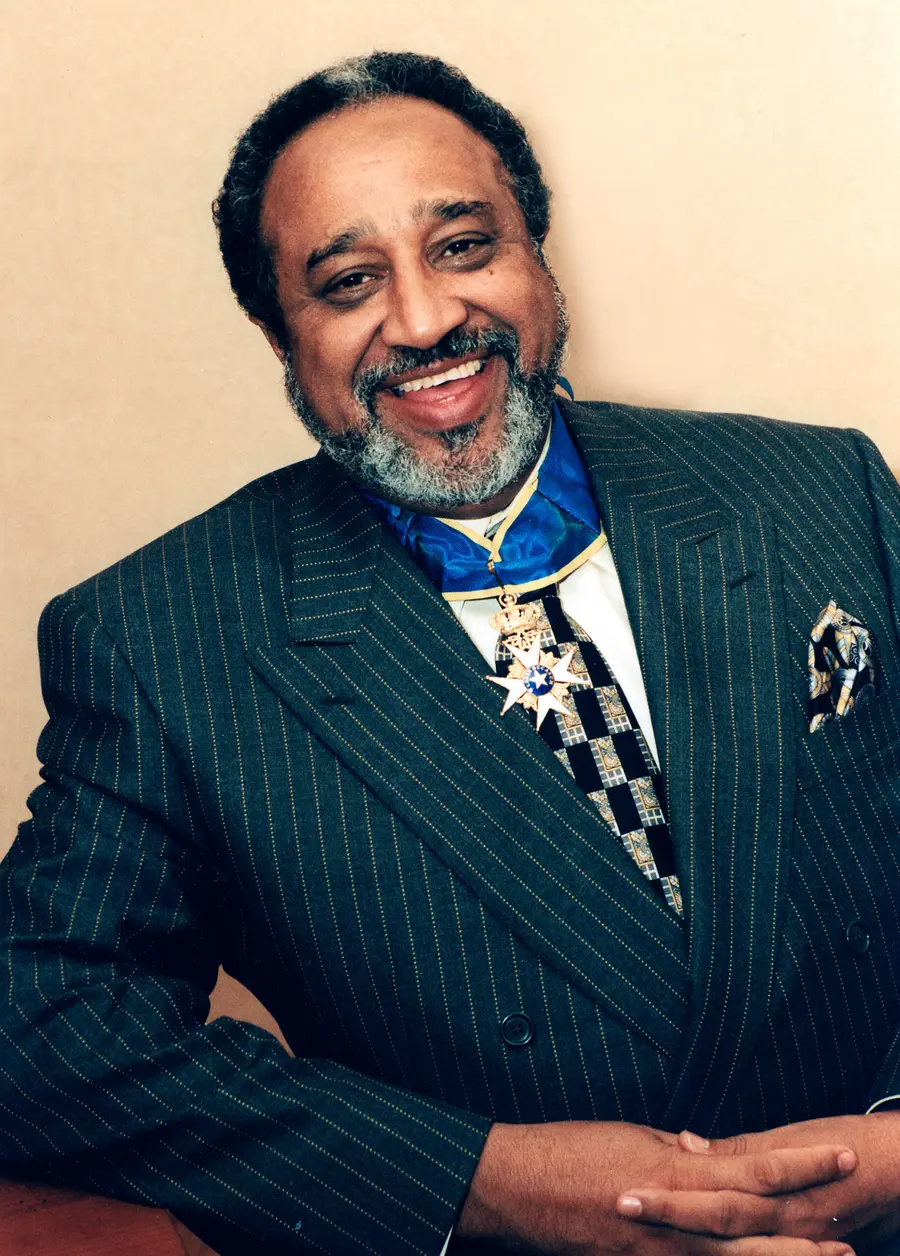What is Mohammed Al Amoudi's net worth?
Mohammed Al Amoudi is an Ethiopian-Saudi billionaire businessman who has a net worth of $8 billion. That makes him one of the richest people in Saudi Arabia.
Mohammed Al Amoudi controls a diverse collection of industrial, energy, and agricultural assets spread across Sweden, Saudi Arabia, and Ethiopia. His holdings include Preem, Sweden's largest oil refinery, a minority stake in the Swedish infrastructure and property company Granitor, as well as extensive agricultural projects and an oil company in Ethiopia. He also owns Naft Services, a Saudi-based gas station operator.
Al Amoudi's wealth has fluctuated significantly over the years, once placing him among the richest men in the Middle East. At his peak, his fortune exceeded $12 billion, but recent asset sales and changes to his Ethiopian gold holdings reduced his net worth by roughly $4 billion in 2025. Despite these shifts, he remains one of Africa's wealthiest men and the single largest foreign investor in Ethiopia.
Beyond his businesses, Al Amoudi has also faced political and legal scrutiny. In November 2017, he was detained during Saudi Arabia's anti-corruption crackdown, an episode that lasted until January 2019. Although his assets in Europe and Africa continued to operate normally during his detention, the incident underscored the complexities of his position as a global investor tied closely to Saudi, Ethiopian, and Swedish markets.
Early Life and Education
Mohammed Hussein Al Amoudi was born in 1946 in Ethiopia to a Yemeni father and an Ethiopian mother. He grew up in the Wollo region before moving to Saudi Arabia at the age of 19, where he took Saudi citizenship. He studied at Addis Ababa University but left Ethiopia to pursue business opportunities abroad.
Starting with modest resources, Al Amoudi began his career in Saudi Arabia's construction and real estate sectors, winning lucrative government contracts during the oil boom years of the 1970s and 1980s. These early ventures laid the foundation for the creation of his business empire, Midroc (short for "Mohammed International Development Research and Organization Companies"), which would become his primary investment vehicle.
Midroc and Early Success
In the early 1980s, Al Amoudi established Midroc, which grew into a sprawling conglomerate spanning construction, engineering, real estate, and industry. His big breakthrough came in 1988, when Midroc's construction arm won a multibillion-dollar contract to build Saudi Arabia's underground oil storage complex. The project was one of the largest of its kind at the time and cemented his reputation as a serious player in the region's industrial sector.
By the mid-1990s, Al Amoudi began diversifying his empire further, particularly in Ethiopia, where he forged strong ties with the ruling Ethiopian People's Revolutionary Democratic Front. His close relationship with Ethiopia's government positioned him as the country's single largest foreign investor.

(via Alamy)
Expansion into Ethiopia
Al Amoudi invested heavily in Ethiopia throughout the 1990s and 2000s, directing capital into mining, agriculture, construction, and manufacturing. He acquired a 98% stake in Ethiopia's only large-scale gold mine, which has been a cornerstone of his holdings. Beyond mining, he developed vast coffee and rice farms, including a 60-year concession on 10,000 hectares in Gambella province. While these projects generated jobs and foreign investment, they also drew criticism. Advocacy groups such as the Oakland Institute accused him of land grabs that displaced local communities, though the Ethiopian government maintained that any resettlement was voluntary.
Al Amoudi's footprint in Ethiopia extends beyond agriculture and mining. His investments cover steel, real estate, hotels, and infrastructure, making him one of the most influential private figures in the country's economic development.
Oil and Energy Investments
In the 1990s, Al Amoudi made a decisive move into the oil industry through his holding group, Corral Petroleum. In 1994, he acquired OKP (renamed Preem Petroleum), Sweden's largest oil refiner, as well as Svenska Petroleum. Preem remains his flagship European asset and a key contributor to his fortune, valued based on enterprise multiples of its public peers.
He also took control of Morocco's two largest oil refineries in 1999, merging them to create Samir. Although Samir later collapsed under heavy debt, Al Amoudi's other oil and fuel ventures, including Saudi-based Naft Services, continue to generate steady revenue. His minority stake in Granitor, a Swedish property and infrastructure group, adds to his European holdings and reflects his diversified approach to asset management.
Legal Battles and Defamation Cases
Al Amoudi's wealth and prominence have made him a target for allegations and controversies. In 2005, he was accused of funding terrorism by French analyst Jean Charles Brisard. The matter was resolved in court when Brisard issued a public apology, admitting his claims were false. In 2011, Al Amoudi won a defamation suit in the UK against Elias Kifle, publisher of the website Ethiopian Review, who had also accused him of terrorism financing. The court awarded him $282,000 in damages.
Detention in Saudi Arabia
On November 4, 2017, Al Amoudi was detained as part of Crown Prince Mohammed bin Salman's sweeping anti-corruption crackdown. The arrest shocked the business world, as Al Amoudi was one of Saudi Arabia's most prominent expatriate investors. Ethiopia's then-Prime Minister, Abiy Ahmed, personally appealed for his release. After more than a year in detention, Al Amoudi was freed in January 2019. No formal charges were ever announced, and Saudi authorities offered no explanation for his arrest or release.
During his absence, his European and Ethiopian businesses continued to operate normally. Company statements at the time emphasized that operations were unaffected, reflecting the decentralized nature of his empire.
/2010/05/mohammed-al-amoudi2.png)
/2016/04/GettyImages-524083760.jpg)
/2021/11/king.jpg)
/2015/07/Mohammed-Abdo.jpg)
/2013/04/GettyImages-96661562.jpg)
/2012/07/ns.jpg)
/2018/03/GettyImages-821622848.jpg)
/2009/11/George-Clooney.jpg)
/2019/04/rr.jpg)
/2020/04/Megan-Fox.jpg)
/2020/02/Angelina-Jolie.png)
:strip_exif()/2009/09/P-Diddy.jpg)
/2017/02/GettyImages-528215436.jpg)
/2020/06/taylor.png)
/2009/09/Brad-Pitt.jpg)
/2009/09/Jennifer-Aniston.jpg)
/2020/01/lopez3.jpg)
/2010/05/mohammed-al-amoudi2.png)
/2016/04/GettyImages-524083760.jpg)
/2018/03/GettyImages-682013558.jpg)
/2010/07/CNW-Man-4.png)
/2019/02/GettyImages-1067726862.jpg)
/2019/08/GettyImages-935039708.jpg)
/2018/01/GettyImages-103107207.jpg)
/2019/11/GettyImages-1094653148.jpg)
:strip_exif()/2015/09/GettyImages-476575299.jpg)
/2009/09/Cristiano-Ronaldo.jpg)